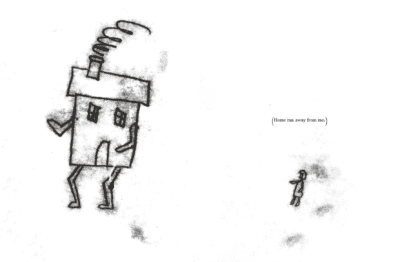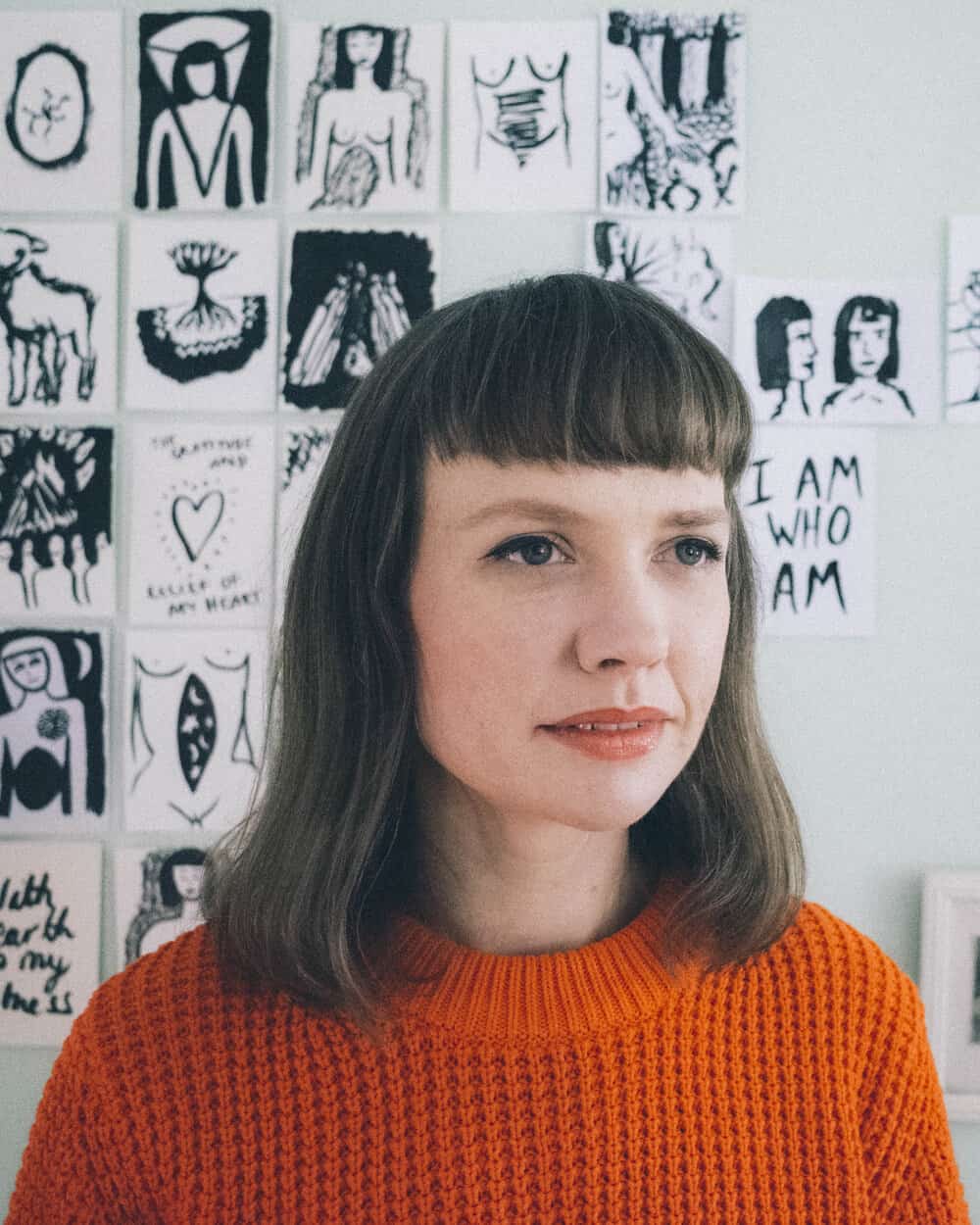Hannah Hull in an artist and musician living in Shropshire, England. This week, she’ll be beamed into Toronto, via Skype, to launch her book, “Home Is A Place That Visits Me” at the Workman Arts Being Scene exhibit.
In partnership with Trinity Square Video, the event will include a reading by Hannah followed by an open dialogue led by Architecture of the Asylum curator Sajdeep Soomal. The discussion will explore the many facets of living in Toronto, taking the phrase “If the body were a house…” from Hannah’s book as a jumping off point. Some questions that might be addressed include: Can artists survive given the disproportionately high costs of living in the city coupled with disproportionately low incomes? Why is the relationship between Toronto housing and people living with mental health and/or addiction issues so often hostile? Attendees are encouraged to bring their own questions and thoughts to share with the group.
Social change is very much at the core of Hannah’s art, and we connected with her to ask her about her thoughts on the relationship between art, housing, and mental health.
How do artists survive in cities like London and Toronto?
Er, bin diving and charity shops?* I moved out of London after 10 years of just about surviving. Although the city itself does still feel like home, I realised that making ends meet month to month was the most I could hope for. So I packed up and moved to rural England, though I pop back for the odd project. I think solidarity with each other and the cultural institutions that really ‘get it’ is probably key to surviving cities… and perhaps the energizing dangle of an occasional carrot.
*Or dumpster diving and thrift stores!
In your opinion, what is the relationship between mental health and housing?
Well, I guess that good mental health can only really begin once our basic needs are met. Shelter is a basic human right, yet it doesn’t really feel this way. The house prices in the UK are such that unless you inherit property/wealth or are able to work 40+ hours a week for pretty much your whole life, you are unlikely to ever own your own home. This feels like a gross exploitation of an essential human need. Personally I find the ‘vetting’ and ‘rules’ associated with renting to be very invasive and dehumanising. Not good for my mental health, for sure.
How do artists, with very little money, ever thrive?
Well, it’s not possible to thrive without having enough money to keep you warm and fed. And many artists struggle with that. But if you manage to get this covered, what more do you need to thrive than being an artist? It’s bloody great.
Do you believe that mental illnesses, like depression, are directly related to capitalism?
I do, in many ways. I have been known to refer to my ‘mental health disability’ as an allergy to capitalism. Each of us have many abilities and talents, and are all able to contribute to society in beautiful and unique ways, yet if we cannot conform to the conditions of our capitalistic society, it seems we must be labelled ‘ill’ or ‘disabled’. That’s pretty depressing in itself. And I don’t think we can overlook the psychological pain of watching our incredible planet deteriorate at the hands of capitalism, and feeling helpless to stop it.

What was it that initially made you start exploring themes of mental health and homelessness through art?
Well, I didn’t actually set out to write ‘Home is a place that visits me’ or ‘Close to Home’*, they both sort-of wrote themselves. Early last year I developed a phobia of my own home, and I realised that this was something that had been happening to me for years – except I’d never questioned it before, I just ran away under some guise or another. These works are me questioning this phobia, working it through, painfully but necessarily, but not completely without beauty (I hope).
*(My forthcoming album that will be a companion to the booklet and released under the alias ‘Burning Salt’.)
What question or idea are you most interested in exploring right now?
The exploration of ‘home’ is probably my most intimate to date, and intractable from this is the idea of family and safety, or lack thereof. But, as part of my PhD, I am currently researching the idea that art and spirituality may be somehow intrinsic to the birth of humanity or consciousness. And, if this is the case, what it might mean that these practices are no longer part of most people’s daily lives.
How can we best support artists?
Oh god. I don’t know! Give them a bunch of money? Bring down capitalism? Recentralise the role of art in society? Or maybe just give them a free cuppa and the Wi-Fi code…?
Home Is A Place That Visits Me Book Launch + Discussion is happening Thursday March 12 (6-8pm), as part of the Workman Arts Being Scene exhibit, running until March 20 at Toronto Media Arts Centre. More details here.



 Follow Us On Instagram
Follow Us On Instagram
